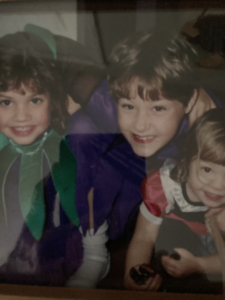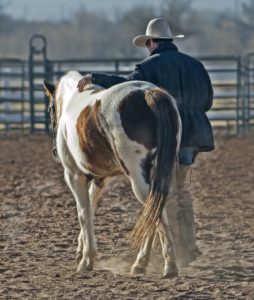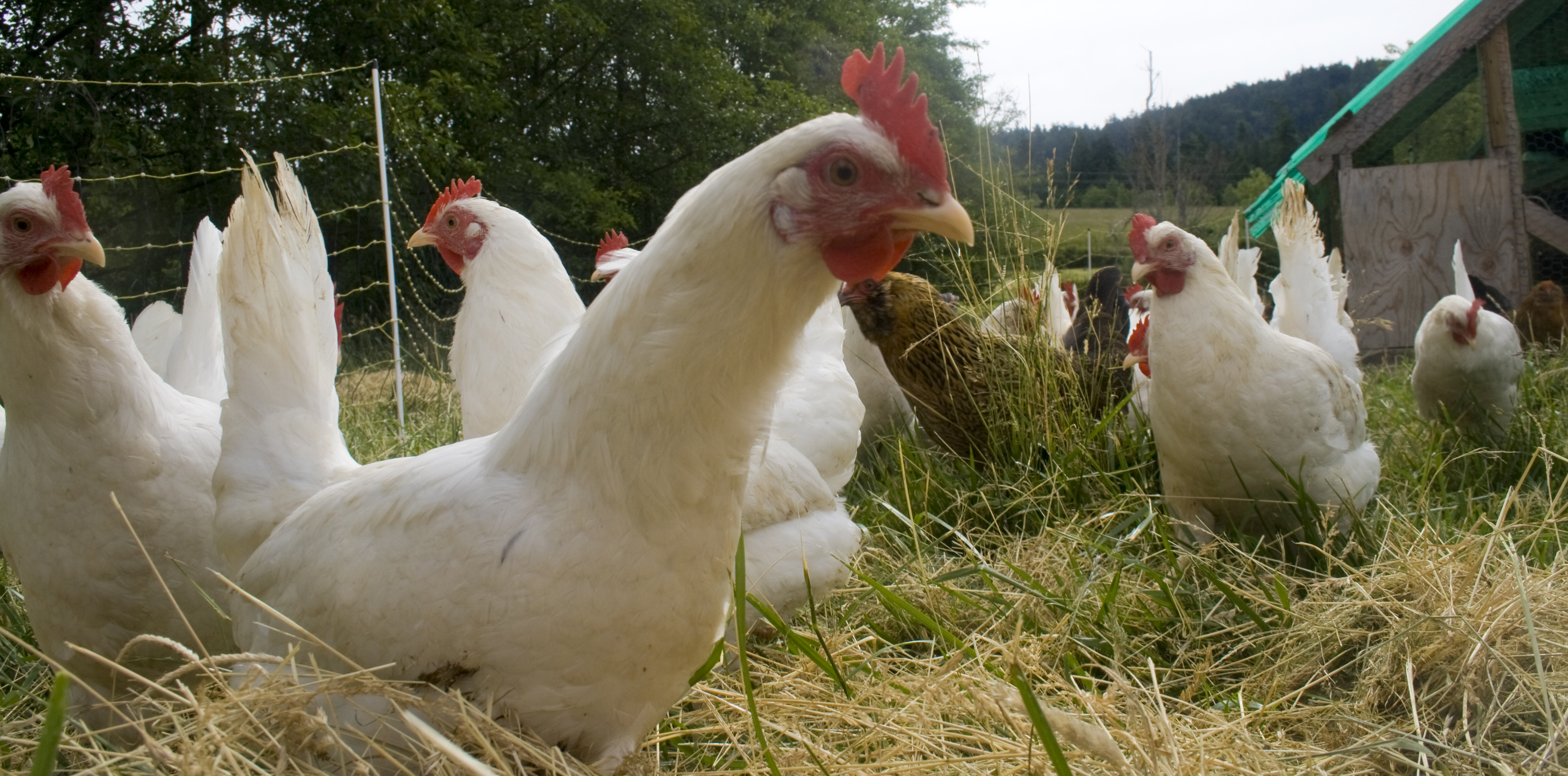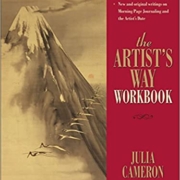Getting Back on the Horse
/10 Comments/in Healing, Uncategorized, Writing /by BethanyThe last time I worked my way through Julia Cameron’s The Artist’s Way, I had three young children (the twins were only 7 or 8; Emma was a toddler), and I was only recently tenured at Everett Community College. I frequently taught an extra class at the college, and I was able to work in our Writing Center for a scant one quarter per year; I was a College in the High School Mentor; I was a Campfire Girls co-leader. (I get a little weary just thinking about everything I was trying to do.)

Took a picture of a picture to get this — I really was BUSY in those days.
Admittedly, it was summer and I wasn’t teaching. Despite being plenty busy with my kids, I woke early, every day, and I wrote my morning pages faithfully. The rest of each day was a bit of a blur, and if I did the exercises, they were incorporated into my morning pages. The artist dates? With those I really, really, really went into serious avoidance mode.
Julia Cameron couldn’t possibly understand how busy
I was. What nerve to insist on a solo, soul-nurturing venture once each week!
When I first proposed doing The Artist’s Way this winter I decided that it was important for me to take the artist dates seriously. Very seriously.
My inner-critic is having a free-for-all with this. After all, as my husband is fond of pointing out, I take plenty of time for myself — not just putting my writing at the top of my to-do list every day, but also sneaking off to drink lattes and read novels. I’ve never been good at ducking out on my friends, especially the ones who like lattes…or wine…and novels. But Julia Cameron doesn’t count one’s work as a date; she doesn’t count a latte and 50 pages of a novel or even a heart-to-heart talk with a girlfriend as an artist date. This is what she says:
An artist date is a block of time, perhaps two hours weekly, especially set aside and committed to nurturing your creative consciousness, your inner artist. In its most primary form, the artist date is an excursion, a play date that you preplan and defend against all interlopers. You do not take anyone on this artist date but you and your inner artist, a.k.a. your creative child. That means no lovers, friends, spouses, children — no taggers-on of any stripe…. (18)
She compares the artist date to the date-night a married-with-children couple might commit to. She also stipulates that the artist date should not be something you are already comfortable with. In her video on the topic, she insists that the artist date should take you out of your comfort level. (By the way, I think that if you take a watercolor class for your date, you’re allowed other students, you’re allowed an instructor. That’s how I allowed for the people who facilitated my date this week at The Art Spot. But this rule is also why, when my daughters wanted to join me, I said “No, sorry, can’t. It’ s an artist’s date.”)
Back in December, when we first put our Artist’s Way group together, I brainstormed a list of possible  artist dates; I asked the other members of the group for feedback; I asked for suggestions here at the blog. And I promised that one of my Artist Dates would involve riding a horse. Yesterday, thanks to poet Jennifer Bullis, and despite all kinds of attempts (on my part) to wriggle out of it, I rode a horse.
artist dates; I asked the other members of the group for feedback; I asked for suggestions here at the blog. And I promised that one of my Artist Dates would involve riding a horse. Yesterday, thanks to poet Jennifer Bullis, and despite all kinds of attempts (on my part) to wriggle out of it, I rode a horse.
It wasn’t like riding the proverbial bicycle, a skill which it’s said one never forgets. When my posture and the simple ability to stay seated on Brownie’s lovely back during a trot seemed, to me, questionable, Barb and Jennifer encouraged me. One of them said:
You have to keep riding every day to get the hang of it, and every horse is different. Try to ride the same horse every day, at least at first.
It was advice that sounded uncannily like what I tell my friends who come to me for encouragement about writing. Just keep writing. Write a little every day. Choose one project and keep at it, just see what will happen.
And much thanks to my friend, Jennifer Bullis, for making this happen.
The Labyrinth: My Artist’s Date
/8 Comments/in Healing, walking, Writing /by Bethany Almost a year ago I went out in the rain and wind to find a labyrinth near the retreat center where I was staying. I didn’t find it, but I hiked up the hill into old-growth timber, dipped my hands into a stream, and, generally, communed with nature. Nice. Then, on the way back to the retreat center, I slipped on the lawn, fell down, and broke my ankle in two places. Stumbling up, to my feet again (ouch!), I saw the labyrinth marked out with stones, just a stone’s throw behind the buildings. Needless to say, I limped back inside. No labyrinth that day.
Almost a year ago I went out in the rain and wind to find a labyrinth near the retreat center where I was staying. I didn’t find it, but I hiked up the hill into old-growth timber, dipped my hands into a stream, and, generally, communed with nature. Nice. Then, on the way back to the retreat center, I slipped on the lawn, fell down, and broke my ankle in two places. Stumbling up, to my feet again (ouch!), I saw the labyrinth marked out with stones, just a stone’s throw behind the buildings. Needless to say, I limped back inside. No labyrinth that day.
Earlier this week, my friend Carla told me about her Artist-Date visit to a labyrinth. I remembered that, near my mom’s home in Allyn, there is a little sign that says, “Labyrinth Open.” Yesterday, inspired by Carla, and disheartened by a not very positive visit with Mom, I decided to investigate. Interesting how I have seen this sign every time I’ve visited Mom in the last four months, but it took a little prompting before it occurred to me that I might walk it.
The parking lot at St. Hugh’s Episcopal Church was empty, and a sign on the office door to the side said “Closed.” I felt like I was trespassing, but there was that “Labyrinth Open” sign. And my Artist’s Date is supposed to get me out of my comfort zone–which made feeling uncomfortable a good thing, right? (And then the whole not irrelevant history with the broken ankle.) So I got out of my car and started walking around the church. I found the memorial garden and a memorial bench. I didn’t see a labyrinth. I found an information board and a brochure that told about the labyrinth and the St. Hugh’s congregation’s tradition of a “blessing bowl” full of stones, and an invitation to take away a stone. Still, no labyrinth.
I expected something obvious, lavender hedges maybe or raised stones. Maybe I expected something like a hero’s journey with obstacles, maybe stations of the cross. Instead I found only this flat patio with a creche at the center. As I hiked around the perimeter, investigating, however, I began to see that the colors of the patio stones formed a spiral pattern. I stepped onto the outer path and I began to walk. 
I thought about Mom as I walked, my mother who no longer walks. I gave thanks for Mom’s long life and many blessings, and I gave thanks for my healed ankle. The blessing bowl full of stones sat beside the path and I picked out a white stone and put it in my pocket. When I had walked all the way to the center of the labyrinth, I spent a moment looking up, at the view of Hood Canal, and then I walked back through the spiral and out of the labyrinth. And that was that. My Artist’s Date.
Certain novels are like this, quiet, unobtrusive, little journeys that can seem almost pointless, except to the discerning reader, that perfect reader (as Hawthorne defined him or her in one of his prefaces).
We are, all of us (writing, or not writing) on a path. Once in a while we open our eyes and see the path.
Don’t Chicken Out
/6 Comments/in Uncategorized /by Bethany “I didn’t realize it at the time, but looking back I can see that I used my family and my jobs and everything else I could come up with as excuses. I kept myself ridiculously busy because I was afraid if I had any extra time, I might have to look at the fact that I’d chickened out on living the life I was born to live.” -Claire Cook
“I didn’t realize it at the time, but looking back I can see that I used my family and my jobs and everything else I could come up with as excuses. I kept myself ridiculously busy because I was afraid if I had any extra time, I might have to look at the fact that I’d chickened out on living the life I was born to live.” -Claire Cook


